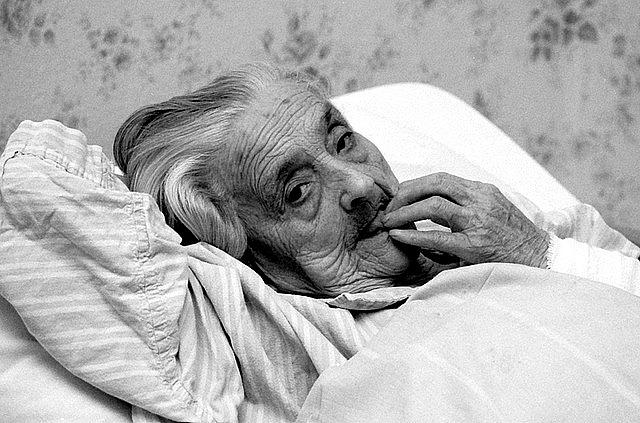A Public Death: Violent Nursing Home Deaths Exposed In Michigan

Sometimes the key fact for a story can be found in a death certificate.
And sometimes, as Robin Erb at the The Detroit Free Press found, the facts on the death certificate hide a much uglier truth. As part of the Free Press' Trust and Neglect series, Erb wrote:
Harry Taylor's was a bloody death. Blood soaked into bed linens, his clothes and into the carpet. Yet his death certificate recorded his last moments as the inevitable end to heart disease. His case -- one that a family lawyer said was never reported to the state -- shows how death certificates may not always reflect what goes on behind nursing home doors.
In Michigan, death certificates are a public record, unlike many other states. I asked Erb about how important death certificates were to the series.
"Death certificates were crucial in this report," she told me. "Nursing home inspection reports are written in dry, clinical and regulatory language, and they contain no identifying information about residents. So you'll see a horrific death – say, from a fall. Sometimes they include a date or time of death – but not always. Sometimes the report will reveal whether this is a man or women – but not always. Sometimes the report will offer an age for the resident. Again, not always."
So what did Erb and the other Free Press reporters do? They dug through documents to find the missing pieces. They found autopsy reports, court filings, obituaries, and death certificates to track down families and to turn anecdotes into investigative findings.
"In reviewing death certificates, we found big disconnects between what nursing home staff observed at a death scene and what would eventually be recorded for history," Erb said. "Sometimes, a death that was caused, or most likely was caused, by staff oversights and blunders wasn't reported to the county medical examiner at all."
Michigan death certificates offer a nice little detail that proves quite helpful for researchers, criminal investigators and reporters. It asks "Medical Examiner contacted?"
That one line on a death certificate led to multiple examples that strengthened the Free Press investigation. "And, if you get a helpful person at the nursing home that is listed on each death certificate, they may be able to put you into contact most quickly with family," Erb said.
One of the most powerful pieces of the series is a short sidebar that Erb and Kristi Tanner wrote about the difficulty of tracking nursing home deaths.
So whether it was a death certificate that was missing the key facts or a death certificate that tied everything together, the fact that Michigan makes these records public made this important investigative work possible.
What does your state do with death records? Are they public or secret? Pay per view or free to all? Help me with my 50-state death records project. Share your thoughts in the comments below or send me a note at askantidote@gmail.com. And follow me on Twitter @wheisel.
Home page photo credit: Ulrich Joho via Flickr

